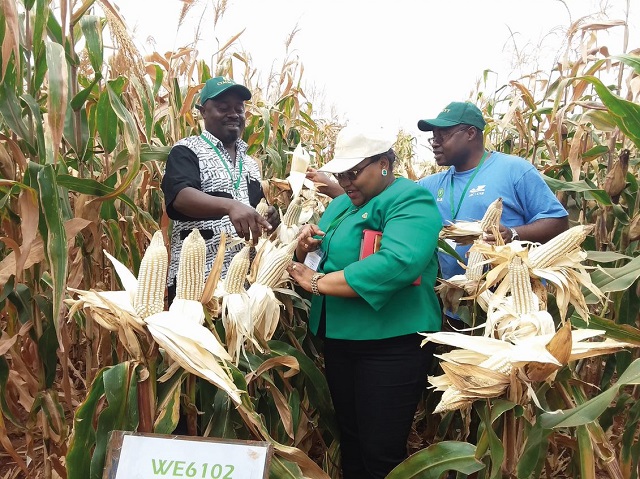
Kampala, Uganda | Isaac Khisa | Biotech crops can effectively contribute to addressing food security and mitigating climate change challenges in Africa, according to Dr. Sylvester Oikeh, TELA Project Manager at the African Agricultural Technology Foundation.
Dr. Oikeh, who was speaking during the Media for Environment, Science, Health and Agriculture (MESHA’s) Fourth African Conference of Science Journalists on Sept.10 said the organization is working towards getting transgenic drought-tolerant and insect-protected maize varieties to farmers to enhance food security in sub-Saharan Africa.
“When farmers have access to the TELA maize varieties ,they will be able to mitigate effects of climate change especially moderate drought and losses to insects such as stem borers and fall armyworm,” he said.
He said TELA Bt maize hybrid varieties have been released to smallholder farmers in South Africa and has been granted environmental release to proceed to national performance trials in Kenya.
Responding to a question on safety concerns on the technology, Dr. Oikeh re-affirmed the safety of biotech products, noting that farmers from other regions across the world are enjoying the benefits of the technology.
“Several global authorities including World Health Organization (WHO); Food and Agriculture Organization (FAO); European Food Safety Authority (EFSA) and many Academies of Sciences have all indicated the GM food has been evaluated and passed through regulatory scrutiny and approved safe to eat,” he said.
In Africa, nine countries including Kenya, Malawi, South Africa, Nigeria and Sudan have approved and released transgenic cotton, cow pea, maize and soybean. Globally, 67 countries are either growing or trading with biotech crops.
The TELA Maize Project is working with governments in seven African countries including Ethiopia, Kenya, Mozambique, Nigeria, South Africa, Tanzania, and Uganda – to deliver the new TELA maize varieties to farmers. All TELA maize varieties will be made available to smallholder farmers through local seed companies after assessment by national authorities according to the country’s regulatory requirements.
The MESHA virtual conference brought together nearly 200 science journalists from 30 African countries and beyond to discuss conservation, climate change, agriculture, and health to bolster factual reporting on science.
 The Independent Uganda: You get the Truth we Pay the Price
The Independent Uganda: You get the Truth we Pay the Price



This is a good article and more should be publishes because in Uganda, local population has a problem of misguided information about biotechnology at large, a very powerful science that can accelerate development and also create solutions to our problems from food, climate change, disease and so on.
Also the pandemic should be a wake up call to government and public about the power of biotechnology, right from vaccine development, to drug development and research.